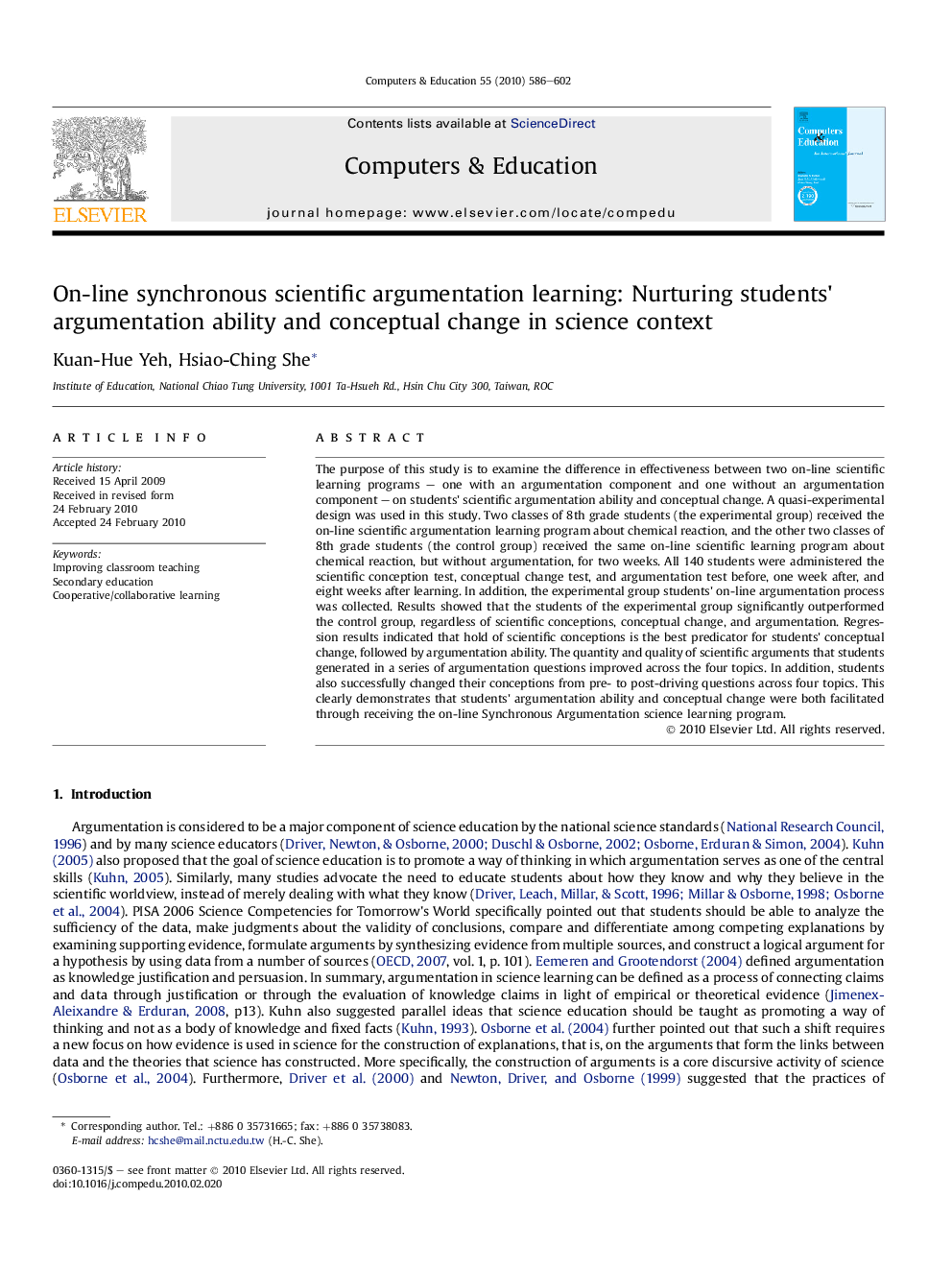| Article ID | Journal | Published Year | Pages | File Type |
|---|---|---|---|---|
| 349129 | Computers & Education | 2010 | 17 Pages |
The purpose of this study is to examine the difference in effectiveness between two on-line scientific learning programs – one with an argumentation component and one without an argumentation component – on students' scientific argumentation ability and conceptual change. A quasi-experimental design was used in this study. Two classes of 8th grade students (the experimental group) received the on-line scientific argumentation learning program about chemical reaction, and the other two classes of 8th grade students (the control group) received the same on-line scientific learning program about chemical reaction, but without argumentation, for two weeks. All 140 students were administered the scientific conception test, conceptual change test, and argumentation test before, one week after, and eight weeks after learning. In addition, the experimental group students' on-line argumentation process was collected. Results showed that the students of the experimental group significantly outperformed the control group, regardless of scientific conceptions, conceptual change, and argumentation. Regression results indicated that hold of scientific conceptions is the best predicator for students' conceptual change, followed by argumentation ability. The quantity and quality of scientific arguments that students generated in a series of argumentation questions improved across the four topics. In addition, students also successfully changed their conceptions from pre- to post-driving questions across four topics. This clearly demonstrates that students' argumentation ability and conceptual change were both facilitated through receiving the on-line Synchronous Argumentation science learning program.
